Chemistry
One of the cool homeschooling parents in our group puts on a chemistry class for young kids. I'm the first to admit that teaching chemistry to 5- and 7-year-olds is probably not really "teaching them chemistry" as most people think about it. You can explain atoms, electron shells, covalent bonds, and chemical reactions all you want, but it will not really "stick". But that's not really the point.
The real purpose of having a chemistry or science class for young kids is to expose them to how things work, and spark interests in experimenting. Basically introduce them to thinking about the physical world and trying things out.
So, while a 5-year-old probably won't remember that "vinegar is an acid and baking soda is a base and that they react to produce carbon dioxide gas", they will remember that something cool happened and that they did it with their own hands.
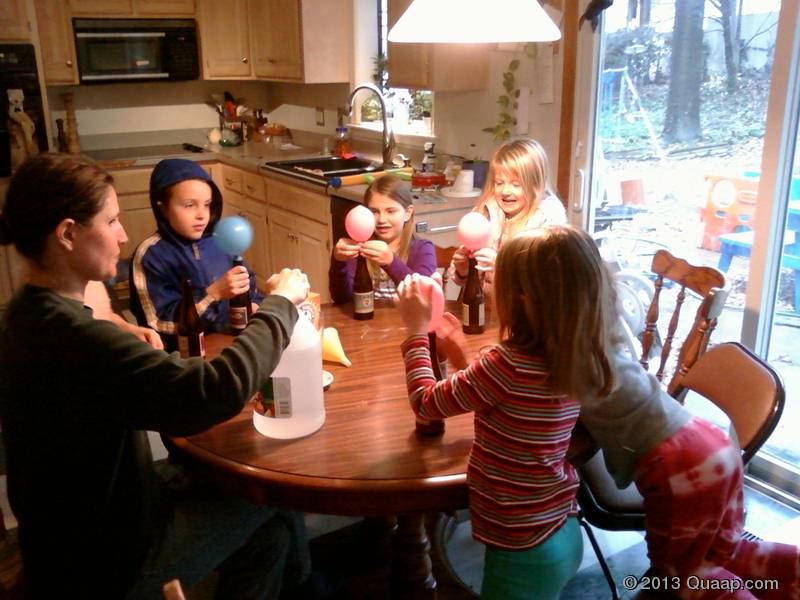
Likewise, a kid is probably not going to remember if the balloon stole or gave up the electrons, but probably will remember that the force that holds the balloon on her head is related to the thing that makes lights work and chemical reactions happen.
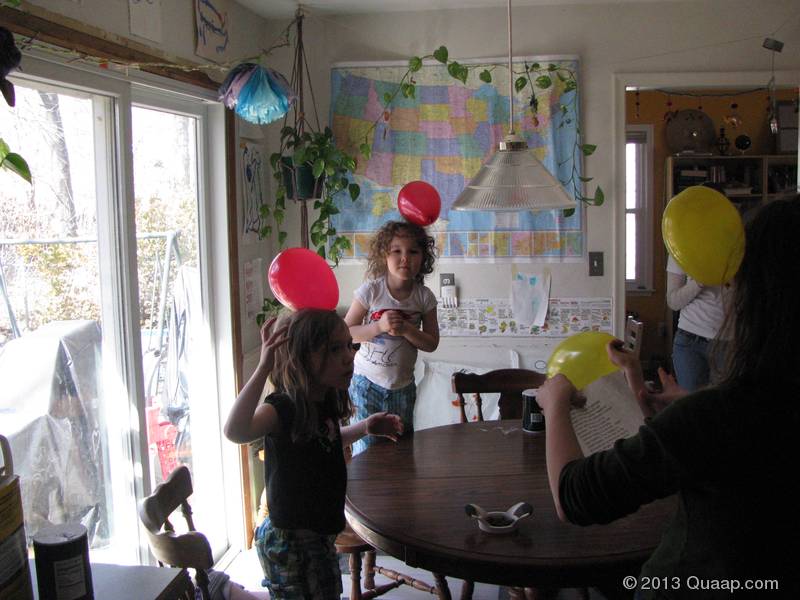
And they might not remember exactly why 50% vinegar and water works better than water or vinegar alone for dying Easter eggs, but they might remember that it did, and they'll definitely remember that they mixed things up and it mattered what they did, and it was cool and fun.
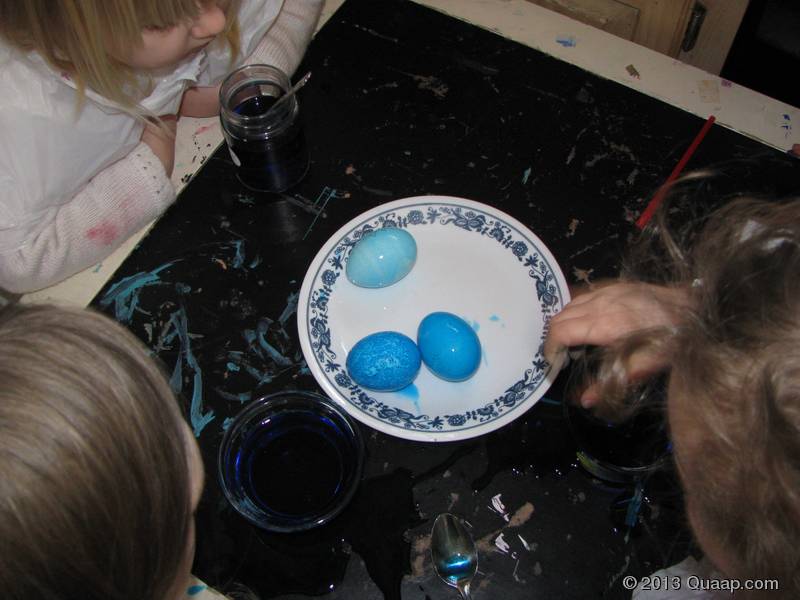
Hopefully, what sticks is the idea that science is a large body of information, and that they can always always always test things out for themselves, and should.
Outside of the class, we've been "doing science" all along. We're always figuring things out, asking questions, trying to find answers, discussing how and why things work, and experimenting with everything. It's all very informal. When I record our homeschooling activities, I usually end up writing "general discussions" in the science section. But every once in a while, I like to make it a little more elaborate and specific.
Years ago I bought a set of Erlenmeyer flasks for use in the kitchen as dispensers for oils, vinegars, salt, etc. Recently I repurposed them for a use more in line with their original intent: lab work. Throw in a few eye droppers, some skinny shot glasses, food coloring, and various kitchen liquids (water, oil, salt water, sugar water, alcohol) and you get The Liquids Lab:
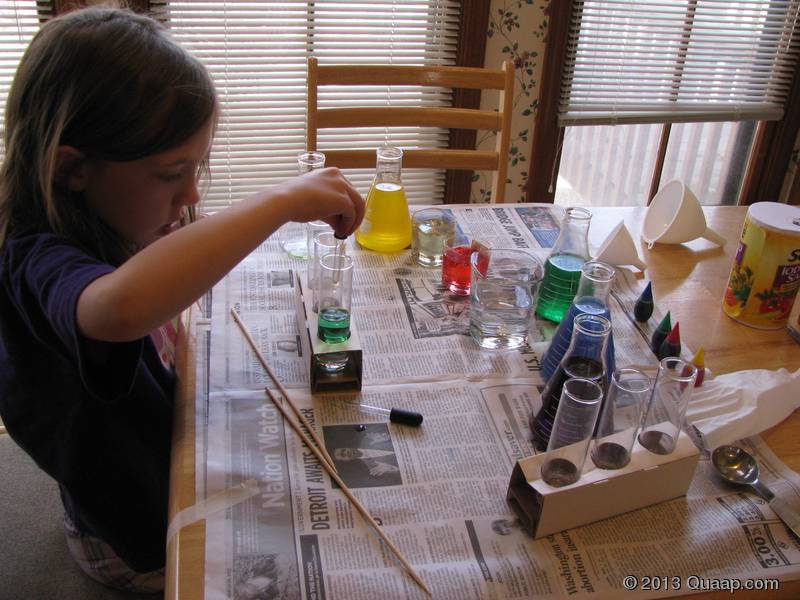
Will she remember that oil is more buoyant than water, but less than alcohol? Probably not. The idea of density won't stick for long, either, I'm sure. But…
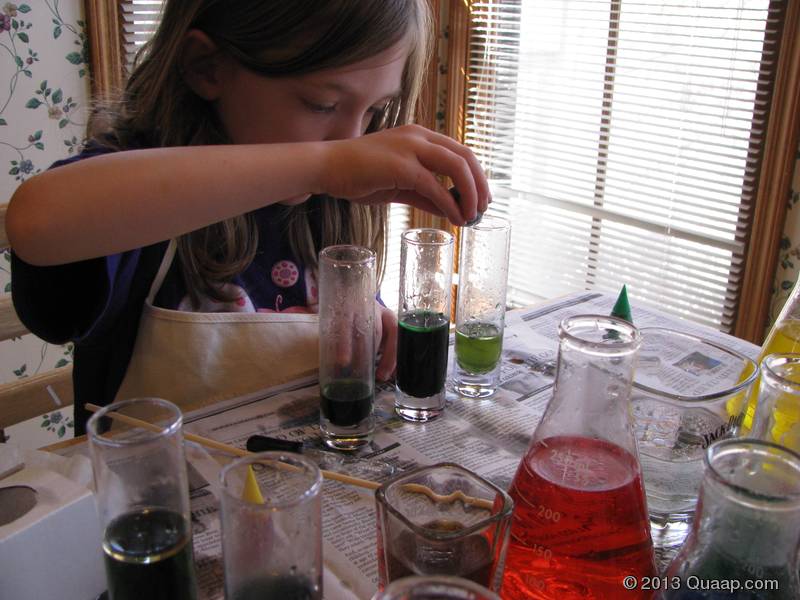
She'll remember that it was fun seeing what happened, and trying to guess what will happen next when she adds more things.
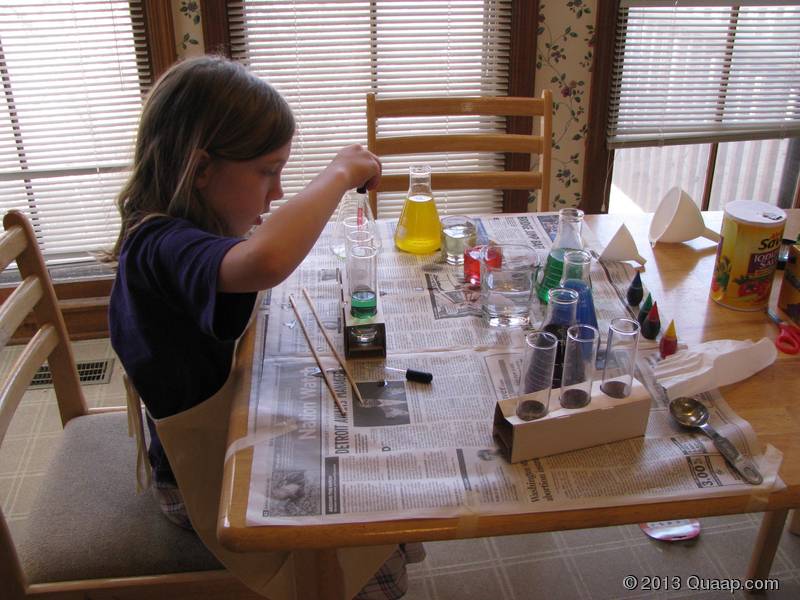
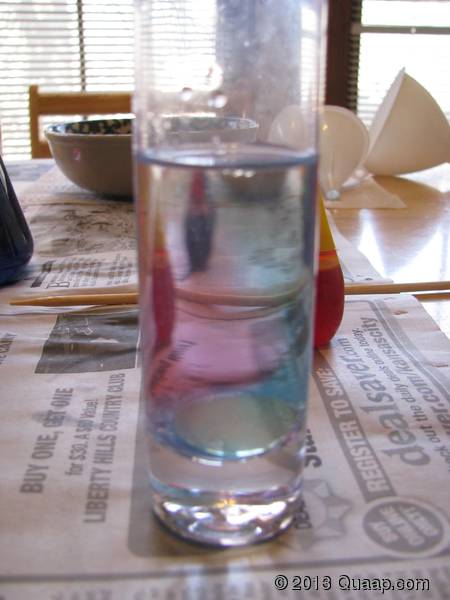
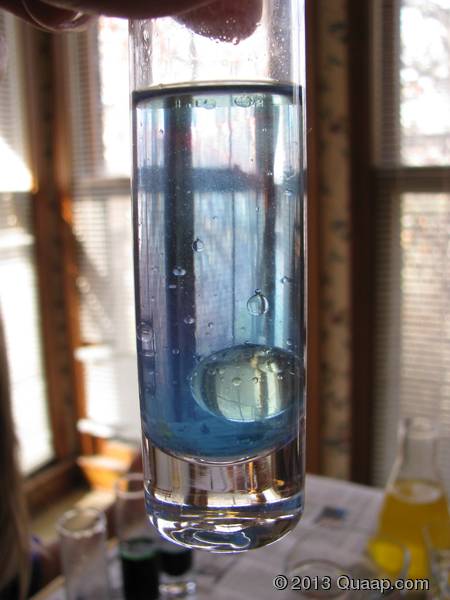

Comments
Love the pictures, it looks like Lucy liked the Liquids Lab!
Oh, and two more words: Tim Griffin! His cds are incredibly wonderful, and the mp3s are up on his site, timgriffin.edu Plus he's a really nice guy!